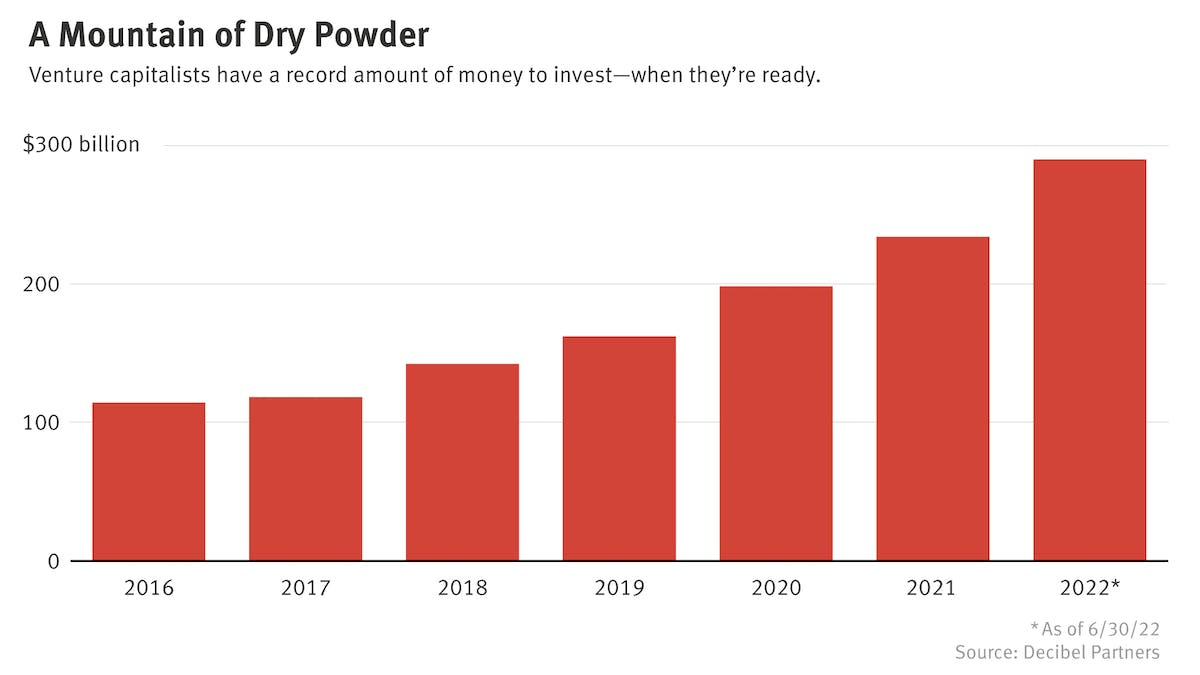During my senior year at UPenn, I came across a Paul Graham tweet linking to Donald Hall’s Poetry and Ambition. It immediately became the most transformative thing I had ever read. Hall’s essay is a lovely exposition on why ambition is a precondition for producing enduring work. It has the rare property of fostering a high degree of aspiration and deep dissatisfaction in its readers. I have recommended it to almost everyone in my life. I spent months wrestling with this dissatisfaction, thinking '“what is the most ambitious thing that I could be doing right now and why am I not doing that?”. Reevaluating your entire perspective on life a few months before graduating college is an extremely disconcerting experience, but if you make it through, the serenity you feel on the other side makes it all worth it.
At the end of my reflection, I decided that the most ambitious thing I could do was to find other people who had a deep dissatisfaction with the status quo and build together to change it.
Siren call
The easy part was finding people dissatisfied with the status quo; the hard part was getting them to believe that they could change it. I spent months talking with my friends about the challenges we faced at Penn, issues in our communities, and how the solutions being built to address them were inadequate. I found that none of them were ignorant or lacked intellectual curiosity. They are brilliant technologists and scientists with a comprehensive understanding of the world. Naturally, I expected to find many of them ready to build bold solutions to address these challenges. Unfortunately, many of them were already entranced by the siren call of Big Tech, Consulting, and Banking.
The siren call is the allure of a career with the promise of a high salary and perceived job stability. Even when brilliant minds recognize the inadequacies in the status quo and see opportunities for change, this powerful allure pulls them away.
It really is time to build
What makes this lack of audacity so frustrating is that building bold ideas right after graduating college is not just a good time to attempt it but, literally, the best possible time to attempt it. Recent college graduates have a monopoly on naïveté and freedom, two critical ingredients in relentless founders. We are perfectly suited to tackle big problems head-on and have massive asymmetrical upside. If you win, you win big, and if you lose, Google, Goldman, and McKinsey will still welcome you with open arms. This is a great deal, and the opportunity cost of not even attempting it is immense.
In addition to this asymmetrical upside, the emergence of foundational AI/ML technologies has opened up opportunities for innovation across all fields and problem spaces. Generative and predictive AI will empower the builders of tomorrow to remake how we interact with every aspect of our physical and digital world. There has never been a better time in American history to be a young Black technologist, so why aren’t we seeing an explosion in building?
The prevailing narrative
The orthodox view is that we have a “VC-side” problem. Proponents of this view argue two main points. (1) Venture capital dollars are highly concentrated amongst non-Black capital allocators and the implicit and explicit biases of these non-Black capital allocators lead them to summarily dismiss Black founders and their ideas. (2) This status quo is a deterrent to would-be builders. It signals that the market is unwilling to invest in young Black builders and as a result, it increases the required activation energy of potential young Black founders.
While there is merit to this argument, Black founders receive ~1% of all VC dollars and makeup only ~3% of all VC investors, it has limited explanatory power.1
Figure 1
Where is the Black Zuck?
I find the VC-side theory unconvincing. In 2020, none of the ~ 33 college-age unicorn founders were Black2. Over the next three years, we saw a 42% increase in active unicorns and VC fund sizes hit all-time highs. Despite this massive growth, none of today’s 12 Black-founded unicorns boasts a college-age founder3.
Figure 2
There are more Black-founded funds and diversity-minded accelerators today than at any other point in American history. Big Tech has allocated record amounts of grant funding, credits, and institutional support to diverse founders. The Social Network provided the popular culture catalyst for a generation of college-aged millennials and Gen-Zers. YC and its ilk made being a founder as high status as ever. If the VC-side thesis is correct, shouldn’t we have seen a Black Zuckerberg by now?
Audacity crises
My heterodox take is that there is an audacity crisis. We have the largest number of young Black engineers, programmers, and scientists in American history. Capital markets are as open as ever and legitimizing institutions are ready to venerate our successes. This presents a remarkable opportunity to forge a more equitable future, transform industries, and pull the future forward. To realize this we must drown out the siren call of Big Tech, Banking, and Consulting. We need young Black technologists working on big bold ideas to reimagine industry, democratize access to opportunity, and activate untapped potential. Corporate America is not going anywhere, but this moment in time is fleeting.
Drowning out the siren's call requires extraordinary effort, but it's achievable. Immerse yourself in the problem spaces of your campuses, friend groups, and communities. Hack together, share articles, substacks, podcasts, hot takes, TikToks, etc. High rates of information transfer are not only a great way to drown out the siren, but also a great way to make new friends/potential co-founders.
Beyond the individual level, you must foster an audacious builder climate on your campus. Campus culture isn't static; it's shaped by policy choices and can be transformed with concerted efforts. You are a constituent of your campus administration, and advocacy is one of the most powerful tools available to you, so use it. Advocate for more hacker groups, more financial support from administration, more intellectual societies, more campus Q&As with builders like Amjad Massad, more everything. An abundance agenda is critical in actualizing system-level changes.
If we want to see 1,000 flowers bloom, we must have the audacity to plant the seeds.






Good read